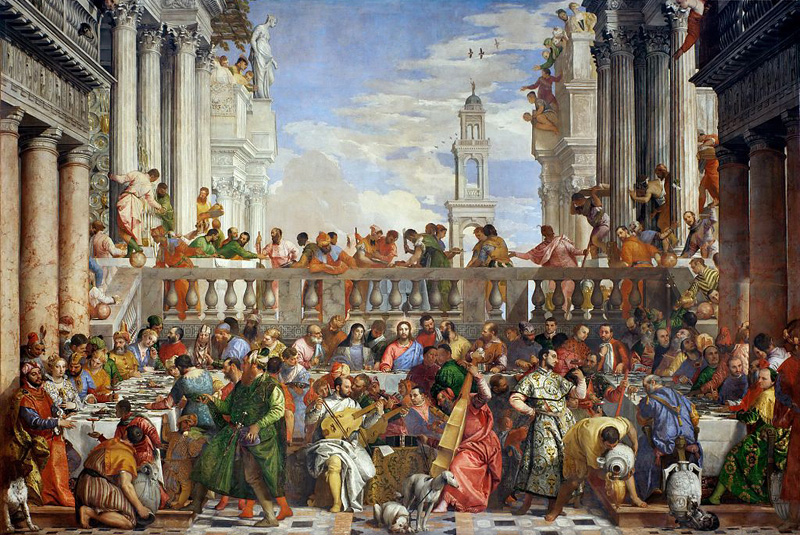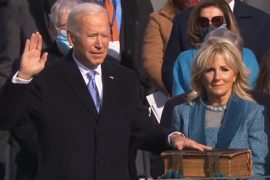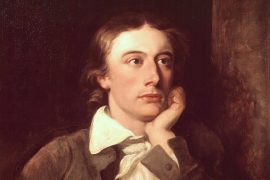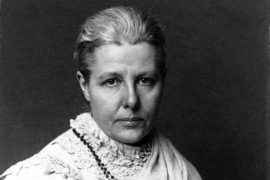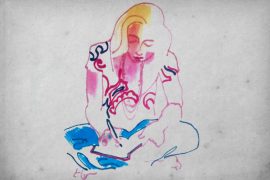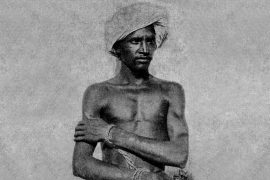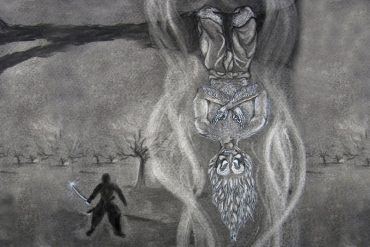When we see political leaders appealing to one religious group to the detriment of another, or when we see religious authorities claim to speak for “all” people, we often wonder if a thriving democracy might not require the elimination of religion from public life entirely.
Even in the most secular of democracies, however, a more careful reckoning of religion’s public role can bring to light not only potential anti-democratic factors but potential pro-democratic forces.
Our work on the International Panel for Social Progress has led us to conclude that religion is neither inherently pro-democracy nor inherently anti-democracy. Finding ways to live together more freely and responsibly requires a careful look at the specific religions and specific societies in question. More importantly, it also requires attention to ground-level religious action and religious organisations and not just to theologies and authorities.
Enlightenment legacies
One can point to anti-democratic examples in many religious traditions. In addition to non-democratic regimes supported by monotheistic world religions, there are autocratic examples that range from Hindu nationalism in India to Buddhist repression of Muslim minorities in Myanmar.
Indeed links between religions and anti-democratic regimes have – at least since the Enlightenment – prompted some thinkers to believe that all religions inculcate intolerance toward alternative views of the world and instil in their followers’ norms of obedience and deference to authority that are incompatible with democracy and individual liberty.
Keeping all religion carefully separate from public life was, it seemed, the best way forward. The French instituted their system of “laicité”, and other countries have followed suit.
The dangers of generalisation
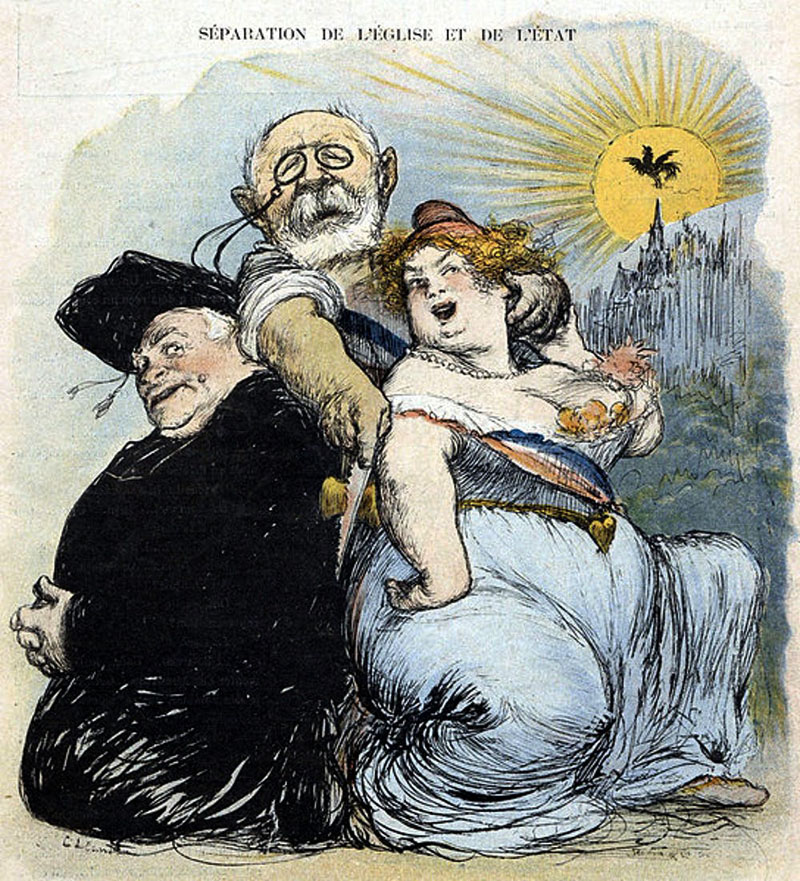
Not all democratic countries, of course, insist on an entirely secular public sphere, so other political theorists have speculated about whether particular religious traditions may be more or less friendly to democratic participation.
In different times and places, the very same religious tradition has been hailed as inherently a seedbed for democracy and as a danger to it.
For instance, Alexis de Tocqueville wrote that Catholics “constitute the most republican and the most democratic class of citizens which exists in the United States.” The reason for this, he argued, was Catholicism’s emphasis on equality:
“[T]he Catholic faith places all human capacities upon the same level; it subjects the wise and ignorant, the man of genius and the vulgar crowd, to the details of the same creed; it imposes the same observances upon the rich and needy, it inflicts the same austerities upon the strong and the weak, it listens to no compromise with mortal man, but, reducing all the human race to the same standard, it confounds all the distinctions of society at the foot of the same altar…”
More than a century later, sociologist Seymour Martin Lipset came to the opposite conclusion. Lipset argued that democracy requires a political belief system that accommodates competition among ideas, while the Catholic church claims that it alone has the truth.
Catholic countries, he contended, were particularly prone to instability and were inhospitable to the kind of compromise and pluralism that lie at the heart of democracy.
More recently – and closer to the ground – the Catholic church’s development of “liberation theology” has been accompanied by the construction of “base Christian communities” in which local citizens have articulated their daily concerns and democratically organised to advocate for change.
The Latin American experience is, in fact, a good example of how the involvement of religion in politics is many-sided. Our co-author David Smilde has written about the many roles of religious groups in Venezuela’s recent history. The Catholic hierarchy has been a key actor opposing the socialist project of Chavismo, yet a group of Catholic community groups has protested that the hierarchy is not taking the sentiments of its members into account. Interestingly, Neo-Pentecostal Protestants have also supported Chavismo, while more traditional Protestant groups have not.
Thus both de Tocqueville and Lipset were wrong in assigning either democratic or anti-democratic essences to the Catholic faith – or to Protestantism, for that matter. The many-sided grassroots public involvement of both Catholics and Protestants in Venezuela illustrates the need to go beyond generalisations that start with an entire tradition.
Incompatible Islam?
Generalised arguments, however, continue to be invoked with respect to other religions – most notably, Islam. Thinkers over several generations have argued that Islam is inherently inhospitable to democratic government.
For instance, French Enlightenment philosopher Montesquieu declared that “[t]he moderate government is better suited to the Christian religion, and despotic government to Mohammedanism,” on account of “gentleness so recommended in the gospel,” which he contrasted to the “despotic fury” that allegedly characterised the behaviour of “Mohammedan princes”.
More recently, political historian Elie Kedourie wrote:
“[T]he ideas of the secularity of the state, of society being composed of a multitude of self-activating, autonomous groups and associations – all these are profoundly alien to the Muslim political tradition”.
Similarly, Samuel P. Huntington invoked Islam itself to explain why few Muslim-majority countries transitioned to democracy during the so-called “Third Wave” of democratisation that began in the 1970s:
“To the extent that governmental legitimacy and policy flow from religious doctrine and religious expertise, Islamic concepts of politics differ from and contradict the premises of democratic politics”.
The evidence on the ground, however, is mixed. Several Muslim-majority countries – including Indonesia, Senegal, Turkey, and most recently, Tunisia – have been able to construct and sustain democratic governments, but recent statistical analyses show that the higher the proportion of a country’s population that is Muslim, the higher its propensity to autocratic government.
Individual attitudes tell a different story
Our co-author Tarek Masoud surveyed the evidence for our IPSP chapter and suggests that the autocratic governments in place may not be the governments that Muslim populations want.
For instance, in a study of mass attitudes toward religion and democracy in Algeria, Egypt, Morocco, and the Palestinian territories in the 1980s and 1990s, political scientist Marc Tessler found that “Islam is not the obstacle to democratisation that some western and other scholars allege it to be.”
And in a thorough analysis of cross-national data from the World Values Survey, Pippa Norris and Ronald Inglehart find that “surprisingly similar attitudes toward democracy are found in the West and the Islamic world.”
Similarly, political science professor Amaney Jamal, analysing a subset of these survey data from Egypt and Jordan, argues that “the dichotomisation of Islam and democracy is a false construct,” as evidenced by the fact that “the vast majority of respondents in both Egypt and Jordan demonstrate simultaneous support for both Islam and democracy.”
More recently, a study of attitudes toward democracy in ten Muslim-majority countries conducted by Sabri Ciftci found that greater adherence to Islamic precepts is unrelated to support for democracy, which “is remarkably high, and […] independent of ‘sectarian’ or theological traditions across the Muslim world.”
Similar findings have been recorded since the early 2000s.
In short, individual-level support for democracy is widespread among the world’s Muslims.
Religion on the ground
If we want to assess the impact of religion on democratic participation, it is crucial to see how religions are “lived” by ordinary people and how they are organised in local communities. Each tradition has ideas and rituals and ways of living that may support (or inhibit) democracy.
Political Scientists Pazit Ben-Nun Bloom and Gizem Arikan drew on data from 54 countries from the World Values Survey to show that religious beliefs and religious participation have different effects.
People who participate in religious organisations have heightened interest in politics, more trust in institutions, and greater support for democracy. They write that how people enact their religions in practice can lead to “the development of civic skills and norms that can have a positive effect on support for democracy”.
Similarly, U.S. political scientists Sidney Verba, Key Lehman Schlozman and Henry Brady found that religious participation was an unexpected predictor of civic participation, especially for less well-off citizens. Opportunities within religious groups to speak out, organise, and lead helped people acquire civic skills they could use in democratic participation.
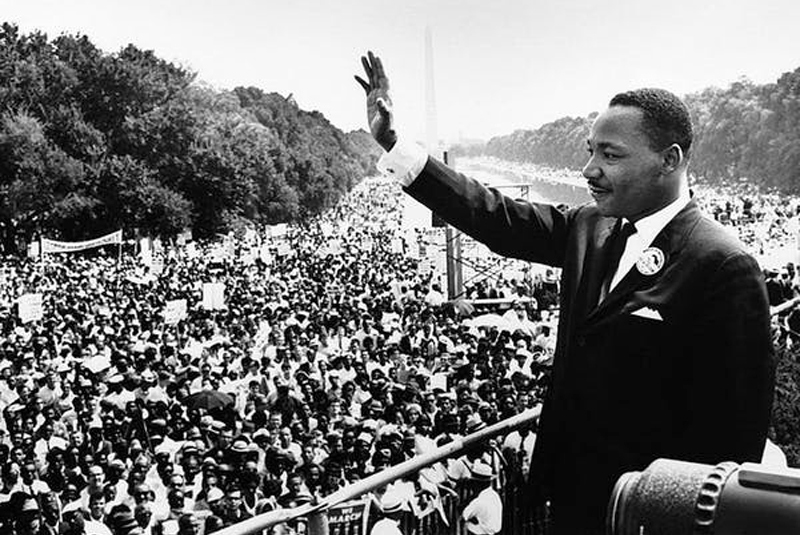
Bringing religion in?
In a book published in 2011, Rethinking Religion and World Affairs, the authors argued that democracy is more likely to emerge and survive when religious actors are included in transition processes, instead of being viewed as hostile forces to be contained.
Including religion will mean paying attention to what religious people do and how they organise, not just to their ideas and theologies or even the pronouncements of religious authorities. It is important to pay attention to the role that religious groups play in enabling or inhibiting the emergence of democratic political orders. Where there is a lively presence of religious organisations, they are likely to be important in any democratising effort.
In Hong Kong’s 2014 democracy protests, for example, leadership developed in Christian communities came to the fore, much as Christians had played key roles a century earlier on the mainland. Such is the case of Dr Sun Zhongshan (Sun Yat-sen), leader of the Republic founded in 1912 and a Christian convert.
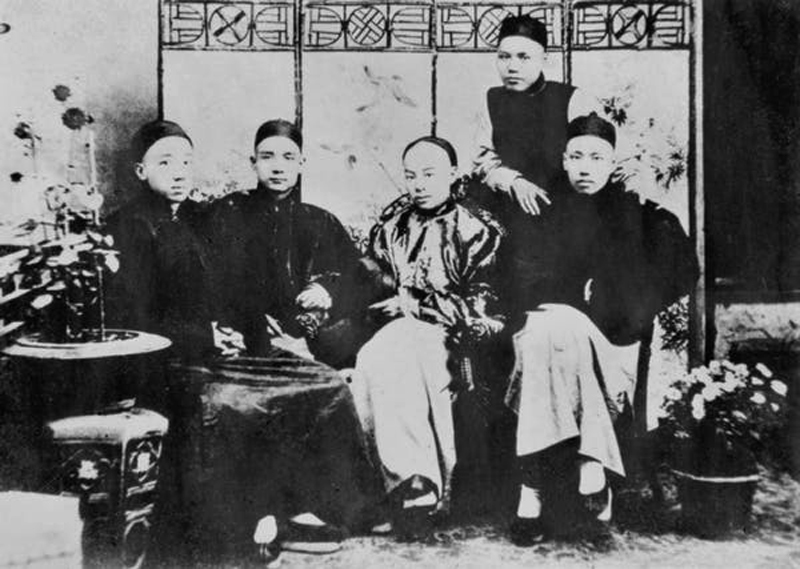
Religious leaders and religious groups should always be seen against the complexities of each particular context.
When Muslims form Islamist political parties, the parties tend to behave like other political parties. They are shaped by the conditions they face on the ground. The shifting fortunes of the Muslim Brotherhood in Egypt provide a vivid example of the difficulty in generalising about religion’s role in democracy.
Thus, the overwhelming impression conveyed by these and other cases is that religions (or religion in general) are neither inherently pro- nor anti-democratic, nor left nor right, nor even for religious freedom or against it. Each situation must be examined on its own terms.
*This article was first published in The Conversation.
-30-
Copyright©Madras Courier, All Rights Reserved. You may share using our article tools. Please don't cut articles from madrascourier.com and redistribute by email, post to the web, mobile phone or social media.Please send in your feed back and comments to [email protected]

